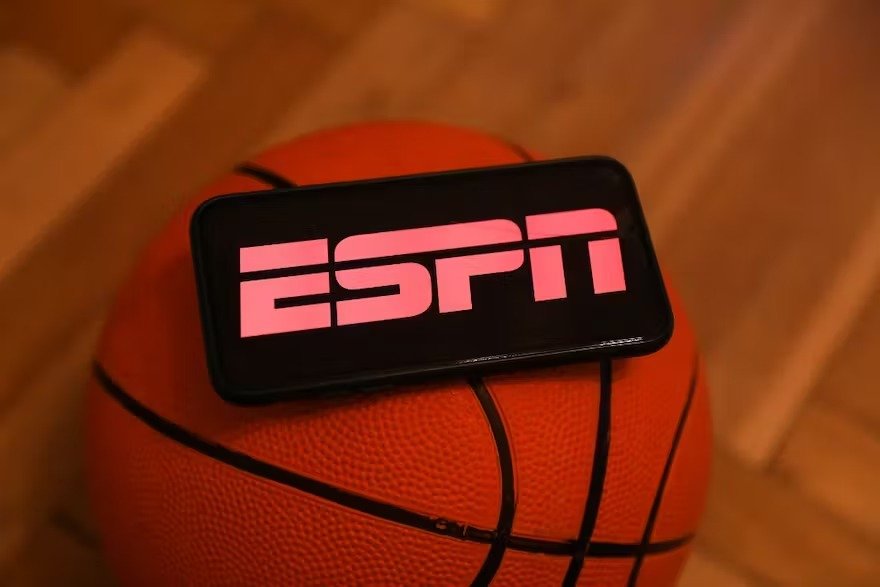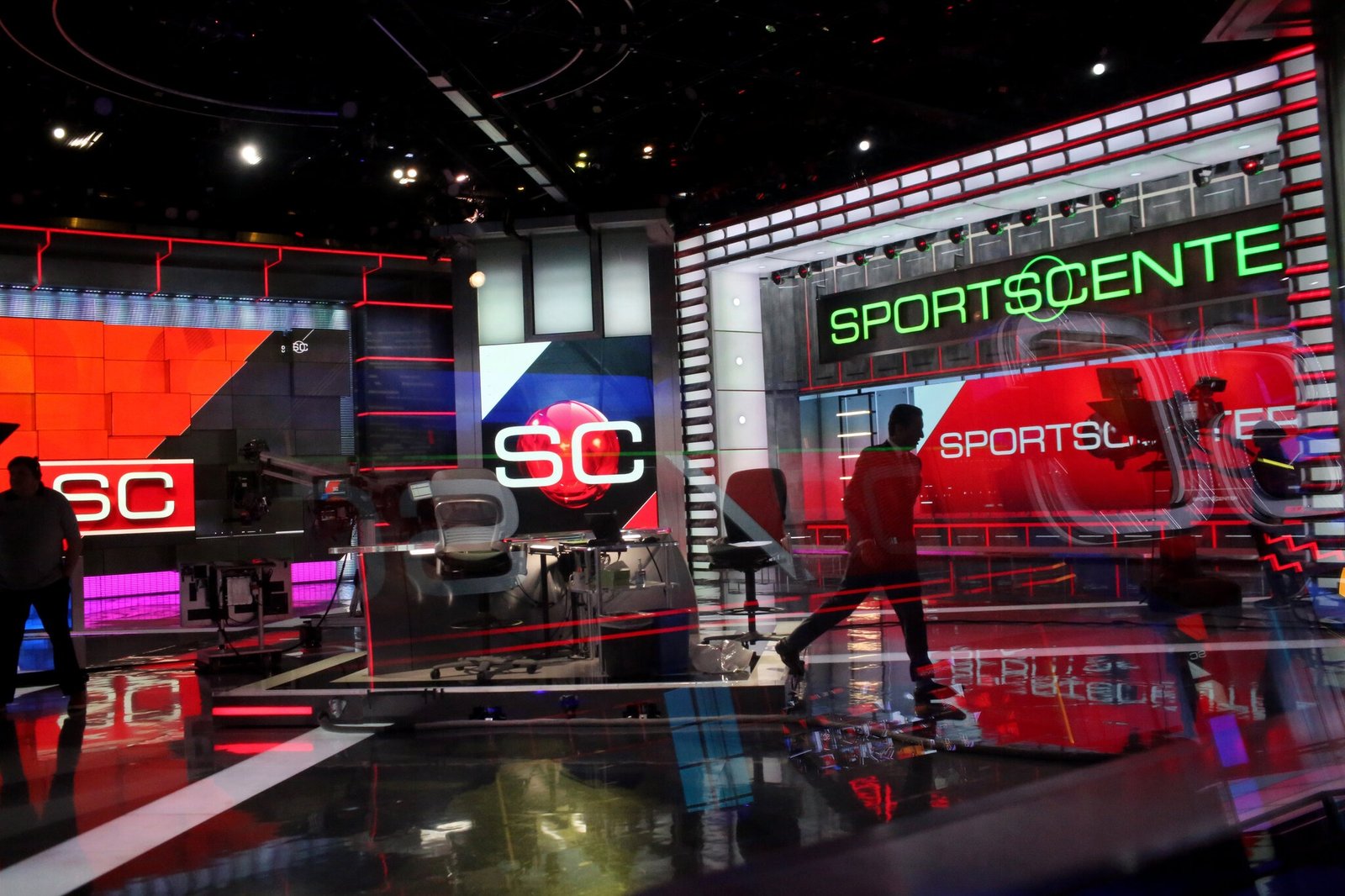ESPN and Penn are “teaming up in a sports gambling world that has exploded in popularity” with their new agreement to rebrand Penn’s current sportsbook as ESPN Bet, as the network has “long been mulling the best way to get in on this cash bonanza,” according to Kellen Browning of the New York Times. Advertisements and paid sponsorships “encouraging people to wager on sports games have permeated broadcasts, including ESPN’s,” and ESPN had “two smaller deals” with Caesars Entertainment and DraftKings beforehand.
ESPN is capitalizing on the burgeoning sports betting business
This agreement, however, allows the network to “rake in a large sum of money related to gambling without — in keeping with Disney’s family-friendly brand — becoming a sports book itself” (N.Y. TIMES, 8/8). ESPN, according to BLOOMBERG’s Gerry Smith, “needed to proceed cautiously” since a “perception that it has become deeply involved in gambling could undermine the family-friendly image cultivated by Disney” (8/8). The relationship also “highlights the various questions and concerns about the intersection gambling and sport,” according to PRO FOOTBALL TALK’s Mike Florio,
with ESPN now “walking the line between massive partnerships with those that produce the sports on which betting occurs, and a company that hopes to facilitate more and more (and more) betting by the general public” (NBCSPORTS.com, 8/8).

THE DETAILS: The will pay ESPN $1.5 billion in cash over a ten-year period, grant ESPN $500 million in “warrants to purchase approximately 31.8 million common shares of Penn,” and contain “options to receive bonus warrants based on the performance” of ESPN Bet. The collaboration will result in ESPN’s exclusive sportsbook,
which will be “part of ESPN’s programming and content integrations starting in the fall.” The redesign would include a “mobile app, website, and mutually agreed upon retail locations.” Audiences will be “able to place bets through ESPN’s digital products” (ESPN.com, 8/8).
MAKING A PIVOT: According to Katherine Sayre of the WALL STREET JOURNAL, the move “marks a sharp pivot” for Penn, which has “struggled to secure market share in the competitive U.S. sports-gambling industry.” Additionally, the business stated that it has “sold its ownership of Barstool Sports to Barstool founder David Portnoy in exchange for 50% of the proceeds on any future sale of the media brand.
” Penn purchased Barstool in a “pair of transactions valued at a combined” $550 million. The companies “underestimated how difficult it would be for Barstool to operate in the regulated gambling industry,” according to Portnoy, whose company has “drawn scrutiny from regulators” (WALL STREET JOURNAL, 8/8).
CASH FLOW: ESPN “confronts a deteriorating cable business that, while still profitable, has lost some 30 million homes over the past decade,” according to Ben Strauss in D.C. Disney, ESPN’s parent company, has “lost billions of dollars on streaming, while the costs for top sports rights continue to rise.” Penn’s $1.5 billion payment to ESPN is “still a few hundred million dollars less than a year’s worth of rights fees the network pays the NFL.” In a “rush to corner the nascent market,” betting firms have “sought partnerships with the largest sports media companies and personalities in recent years, as one of their key customer acquisition strategies.”
” FanDuel “launched its own TV network,” while DraftKings “has a partnership” with “The Dan Le Batard Show.” The Penn-ESPN relationship will “make the promotion of ESPN Bet a ubiquitous presence on all of ESPN’s platforms,” according to a business representative, but ESPN will “still take ads from other gambling operators” (WASHINGTON POST, 8/8). According to CNBC.com’s Rohan Goswami, Barstool Sports was “valued at” $606 million in February, when Penn “bought the rest of the company that it didn’t already own.” Penn will become a minority shareholder in 2020 (CNBC.com, 8/8).

EVERYONE WINNS: Ryan Glasspiegel in New York noticed Portnoy established Barstool in 2003. In a press release, Penn claimed to have “sold ‘100%’ of Barstool to Portnoy ‘in exchange for certain non-compete and other restrictive covenants’ and the ‘right to receive 50% of the gross proceeds received by David Portnoy in any subsequent sale or other monetization event of Barstool.'” Portnoy, on the other hand, “called the situation a ‘win-win'” as well as “wished ESPN and Penn the best of luck in their relationship” (New York Post, 8/8). The transaction, according to VARIETY’s Brian Steinberg,
“launches a new chapter for Barstool Sports, a specialist in viral, sometimes edgy sports content.” According to Penn President and CEO Jay Snowden, “the divestiture allows Barstool to return to its roots of providing unique and authentic content to its loyal audience without the restrictions associated with a publicly traded, licensed gaming company” (VARIETY, 8/8).
CASH INFUSION: According to CNBC’s Lillian Rizzo, the purchase announced yesterday “allows Disney to shore up cash” while the company “loses money on its streaming unit and is likely to acquire Comcast’s stake in Hulu early next year.” As part of the agreement, ESPN will have the “option to designate one nonvoting board observer to Penn’s board,” or, after three years, “designate a board member subject to certain regulatory approvals and a minimum ownership threshold.
” According to the latest agreement, Penn will “have the right to 50% of the gross proceeds” that Portnoy earns from “any future sale or other monetization of Barstool.” Penn’s stock was “up roughly 20% in after-hours trading Tuesday,” while Disney’s stock was just “slightly up.” Today, both Disney and Penn report results (CNBC.com, 8/8).
A BRAND NEW CONTENT BUCKET: In New Orleans, Jim Derry highlighted that the decision comes at a time when ESPN and Disney are “bleeding cash” and “fired about 20 on-air personalities,” including Suzy Kolber, who has been in sports broadcasting for 38 years and with the network for more than a quarter-century. The network also “let go” Max Kellerman, Steve Young, Jalen Rose, Todd McShay, Keyshawn Johnson, David Pollack, and “other big names.” Having said that, the network has “seemed to double down on its betting content in recent years.
” Every day, the “Daily Wager” broadcast airs on ESPN2 and the Watch ESPN platform. Sports Betting Insider Doug Kezirian, on the other hand, was “part of the most recent layoffs” (New Orleans TIMES-PICAYUNE, 8/8). According to Alex Weprin of the HOLLYWOOD REPORTER, Disney, under CEO Bob Iger, has “dismissed getting into business with sports bettors.” Former Disney CEO Bob Chapek, on the other hand, described betting as a “major opportunity,” and it appears Iger, “in his second run, agreed” (HOLLYWOOD REPORTER, 8/8).
WHAT IT MEANS FOR DISNEY: According to CNBC’s Alex Sherman, “ESPN is clearly in some sort of strategic new phase here.” In terms of the company’s next earnings report, however, Sherman stated that “this is not a great time for Disney.” Sherman goes on to say, “linear advertising, not great … subscribers to linear TV, not good” as well as the “acceleration of cord-cutting.” Sherman has this to say: “Disney needs to give investors a reason to once again get excited about the company” “Worldwide Exchange,” CNBC, August 9th. According to CNBC’s Andrew Ross Sorkin, the agreement between ESPN and Penn “will not preclude ESPN from selling ad space to rival digital sportsbooks.
” According to CNBC’s Melissa Lee, the transaction “underscores Disney’s need to entertain all ways of really monetizing that ESPN brand” and is “another step towards that.” According to CNBC’s Contessa Brewer, the contract is “so big that industry insiders’ jaws dropped at the price tag because other sportsbooks had been in talks with ESPN but just couldn’t wrap their minds around how much ESPN wanted” (“Squawk Box,” CNBC, 8/9).
